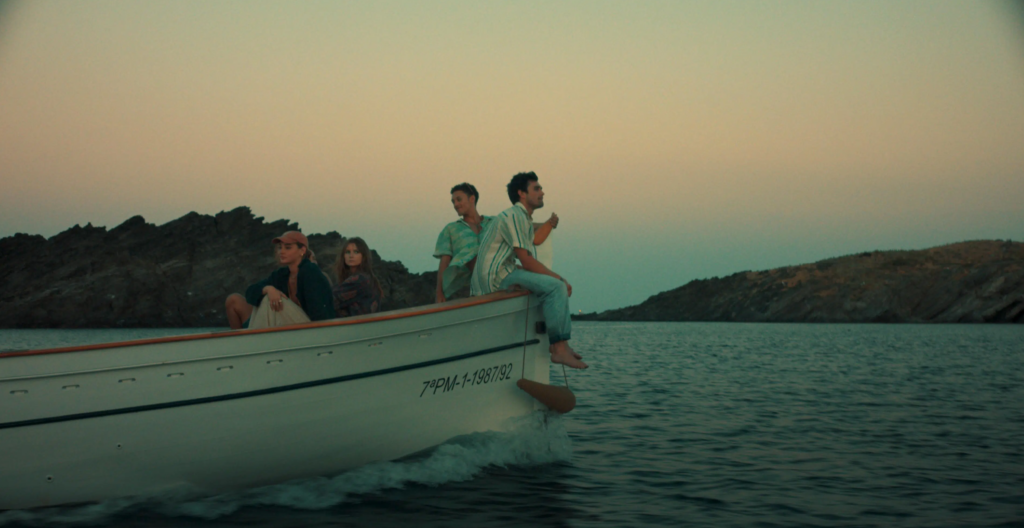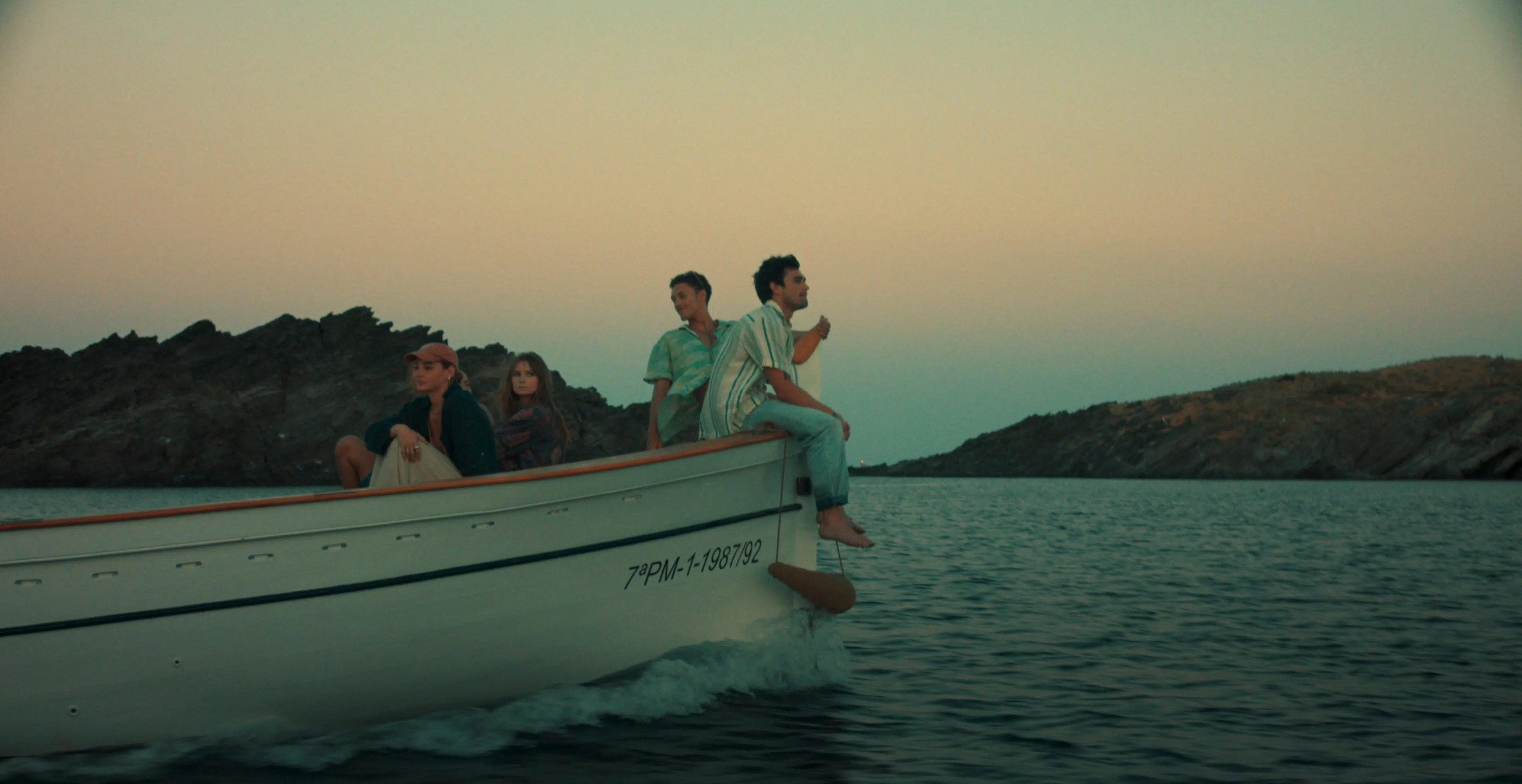
On the Record | Find meaning in your day-to-day, not just your days off
Photo credit: The Map That Leads to You, Prime Video
By Lexi Boccuzzi
“Live like your time is running out, and abandon your ‘real life’ for love, beauty, travel, and the existential.”
That’s the message of the two chart-topping book adaptations released by America’s favorite streaming services this month. Reckless abandon… sounds like every Romantic’s dream, right?
In an age where people are lonelier, less religious, and yearn for purpose more than ever before, this message seems apt. Instead of offering a solution, however, it teaches us that the key to a worthwhile existence is a life absent the mundane day-to-day — rather than reminding us that we can, in fact, romanticize our real lives.
In both Prime Video’s The Map That Leads to You, and Netflix’s My Oxford Year, the female leads are relatable, overachieving daughters intent on following their carefully laid-out plans. Heather and Anna are recent college graduates who are about to start their careers as investment bankers. Before that, however, each woman embarks on the intelligentsia’s quintessential expat experience. Heather goes on a post-grad trip around Europe, and Anna spends a year studying poetry at the University of Oxford. There, the girls meet their swoon-worthy, arrogant, and cultured male counterparts: Jack and Jamie. As the boys quietly battle cancer, their admiration for literature and history reminds Heather and Anna that there can be more to life than a desk job.
As any elite university graduate knows, galavanting abroad seems to be a rite of passage. Friends, family, and mentors will often say, “You will work for the rest of your life! Take some time off and travel! When will you have the opportunity to do it again?” Many recent graduates have clearly heeded this advice, including more than 4,000 students who applied to either of the two Fulbright Scholarships last year, which sends young Americans to teach English or research abroad. Similarly, thousands apply for the Rhodes and Marshall Scholarships annually, which fund Master’s Degree programs in the United Kingdom. Aside from these numbers, even greater numbers of post-grads will take a month-long trip around exotic locations across Asia, South America, and Europe, searching for something they doubt the rest of their lives can offer them.
My last year has been colored by amazing stories from friends halfway across the world—studying international regulatory regimes, working in rural elementary schools, touring incredible archaeological sites, and going out with their foreign colleagues. Many of them returned more inspired, curious, and voracious for life: traits they look forward to bringing back with them to the States.
I have been asked countless times why I never wanted to spend months abroad; my reasoning has varied. Am I a workaholic? Maybe. Am I not adventurous enough? Sometimes! Am I attached to my relationships and communities? Certainly. Do I just love the United States more than most of my peers? Probably. None of these rationales really explains why I haven’t “taken time off” from reality. In all honesty, I think I just romanticize my real life too much to leave it behind.
The Map That Leads to You opens with Heather and her love interest, Jack, meeting on a train to Barcelona. They both, serendipitously, see that the other is reading Ernest Hemingway’s The Sun Also Rises. The choice of that book is no doubt a nod to overcrowded European trains, expats traipsing through Spain (a little on the nose as Jack points out), and, of course, the tragic, almost love story of Lady Brett Ashley and Jake Barnes.
That said, the book is also a story of people searching for meaning in the wake of World War I. Jake struggles with his impotence, and Brett with her desperate desire to be loved. Despite the bullfights, wine, and foreigners, Brett and Jake are unable to find happiness in their realities throughout the story. It ends in Brett opening their famous exchange with, “Oh, Jake, we could have had such a damned good time together,” in which he retorts, “Yes. Isn’t it pretty to think so?”
Jake and Brett’s anticlimactic end reminds us that, while we can embrace a version of reckless abandon by delaying real life on a vacation, it won’t bring lasting meaning to our lives. Jake and Brett’s romance remained a fantasy because they were unwilling to address the consequences and risks that came with their real circumstances — but those are precisely the things that give life meaning.
What The Map That Leads to You and My Oxford Year get right is that life is too short not to be savored. Roughly half of my peers from Penn pursue careers in finance and consulting after graduation, like Heather and Anna. These fields alone don’t present the problem, but they can represent a symptom of a risk aversion that leads to a less romantic life.
Rather than tread less-walked paths, we can fall into a road where the ladder of “success” is laid out in front of us. This makes it harder to discern what things will actually bring our lives meaning. We read less, love less, pray less, and work jobs that matter very little to us. No amount of European vacations can change that if we don’t make an active effort to be present. Many of us never come to this realization, but those like Jack and Jamie, who have seen firsthand just how quickly life can be ripped from you, know that each day is a blessing.
Instead of just running away to Barcelona or Oxford, waiting for love or tragedy to change your life, I’d encourage you to also live every day with intention and meaning. Stay up too late laughing to the tune of an empty bottle of wine; fall for someone over discussions of novels, films, and philosophy; take a new job that sounds challenging and exciting; cook great meals; go on long walks; and surround yourself with people who remind you how wonderful life is. I can’t promise it will spare you the complications of real life, but the Romantics were right to believe that even those can be beautiful.
And maybe, if you’re lucky, you will figure out what you want to do for the rest of your life and the person you want to do it with. One thing is for sure, that won’t happen if you just wait around for the next time you can take PTO.
Lexi Boccuzzi is a Penn 2024 graduate of the College. Lexi was the founding editor-in-chief of The Pennsylvania Post. Her email is abb628@sas.upenn.edu.




